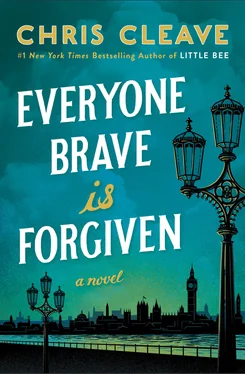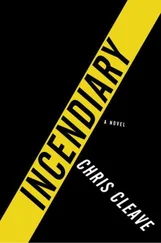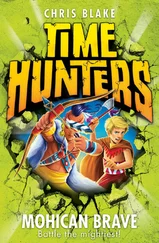“Oh come on, though. Really.”
“I’m restoring a painting, sir. As I did before the war, sir.”
“That was another life. Is the Tate still there, do you suppose?”
“I couldn’t say.”
“Who can? London might be ashes by now and none of us would be the wiser. There’d be a Ministry of Letters, forging notes from all our girlfriends.”
Alistair tried not to think about it. He hadn’t heard from Mary in a month. For a while she’d written every day and then, abruptly, nothing. Everyone else had got letters. Every now and then a mail plane was shot down, but it didn’t seem likely that nothing at all from Mary had got through.
Simonson peered at the thinners. “So what are you restoring?”
“Nothing important,” said Alistair. “Local artist.”
“Go on, I’d like to see it.”
“Sorry, but it’s private.”
Simonson closed his eyes for a moment. “Alistair, it’s been weeks. So we had a ding-dong. So bloody what.”
“I put you in an unbearable position.”
“No, you did the decent thing. I’m sorry I didn’t come to help sooner.”
The two men shook hands — Alistair had to use his left — while the red sand hissed in through the rifle port. Simonson held Alistair’s hand for half a minute before he let go. “I used to be less of an ass, you know.”
“It gets to us all. I used to be Ginger Rogers.”
“Explains why the men are so sweet on you.”
“The painting is under the bed. If you actually care.”
“Get it.”
“Get it yourself, you lazy sod.”
Simonson crouched by the cot and pulled the painting out. He unwrapped it and set it on the mattress. It was a Madonna and child in the Caravaggist style — the woman in a carmine dress, the child with amber skin, the contrast of the strict chiaroscuro diminished by a layering of soot. Four feet by three, the gilt frame blistered and charred on the left, which was also the side from which light entered the painting. The impression was of a pacific moment caught in time and lit by the residual heat of catastrophe.
“Where did you turn this up?” said Simonson.
“It was rescued from that church the plane crashed into.”
“You went back there?”
“The priest gave it to me to restore.”
“As your penance?”
“Something like that.”
Simonson went to the rifle port and looked out, hands in pockets. “You know we’re allowed to kill Germans? That it’s encouraged?”
Alistair said nothing. His head throbbed and fever crept down his back. He only knew that it soothed him to make the painting good again. He liked the Madonna’s slightly vexed smile, as if something inconsequential had just been knocked over and would need to be swept up. As if she might have just sworn under her breath. He liked the honey tones of the child’s skin, the paint not scoured by wind or crazed by concussion. He liked the clean smell of the thinners cutting the forlorn odor of soot.
“It is a fine painting,” said Simonson.
“Isn’t it?”
The two of them stood together, looking.
“One forgets,” said Simonson.
“Forgets what?”
He waved a hand in irritation. “I don’t know. Women. Light. Oh, carry on.”
He turned and made to leave. The wind bellowed, shaking the tower.
Alistair said, “I haven’t heard from Mary.”
Simonson took a step back into the room. “There will be a sound explanation. Perhaps she has realized how ugly you are.”
“Heard from any of yours?”
“Oh, Alistair, they write without pause or reason. There is nothing I don’t know about the menu at Black’s or the fashion at McIntie’s. I am fully apprised of the current mot du jour, which is ‘swell,’ and of the words now considered déclassé—including ‘war,’ apparently, which we must now refer to as ‘this trouble.’ I know everything, you see, apart from how to reply. I can hardly write that we are down to skin and rivets. That the enemy could knock us into the sea with a well-timed look.”
“Perhaps you should tell them how it is. It might winnow them down.”
“Having three women suits me fine. It takes a royal fool to pick one. I can’t imagine why you’re so good at it.”
Later, under the violent sky, Alistair took his troop gardening in the moat. The Victorians had taken the ditch as they found it, simply building its walls higher to make the fort, which defended the western segment of the Victoria Lines, which in turn defended Grand Harbour — the Mediterranean base of the Victorian Royal Navy — against a land invasion from the north. In short, as Alistair’s men delighted in pointing out, the moat was the perfect thing to protect something that no longer existed against something that would never happen again. “Well then, you clever bastards,” Alistair told them, “you might as well plant potatoes in it.”
He split his troop into its four guns as he had each day for a fortnight, putting each seven-man team of gunners to dig and plant a strip across the moat. He reckoned to cultivate around thirty yards in a two-hour shift from four to six p.m. Two hours of labor was all the food ration allowed. Even then, Alistair sometimes looked at the men’s gaunt faces and their sharp, shirtless ribs as they worked, and discovered that his watch must be running slow. He usually declared six p.m. at a quarter to.
Today was the worst it had been. In the bloodied light the men sweated and swore as the dust storm screamed above the moat. The parched earth would not submit to shovels and required to be loosened with picks before the lumps could be put into sacks and smashed against the stone walls of the fort. Only then did the stuff resemble soil. And when the precious seed potatoes were planted in their shallow drills and irrigated with the foul water from the kitchens and with the men’s own urine, the moisture was baked out instantly. It was difficult to believe that a crop would sprout from terra cotta.
With his rotten hand Alistair could offer no help. He made himself as useful as he could, bringing water from man to man and finding errands on which to send the weaker ones to give them some reprieve. A little before five, the men unearthed something. When Alistair saw a deep opening he called them off straight away and sent them back sixty feet.
The picks had broken through into a cavity, and the danger was the possibility of unexploded ordnance. The opening was around three feet square, and Alistair tiptoed to the edge. Lying flat, he looked over the lip of the hole and waited for his eyes to adapt. He could smell his hand, even with the wind.
The base of the hole became visible, and it wasn’t deep. He lowered himself in. His feet touched bottom while his head and shoulders were still above ground level. He motioned for the men to wait where they were, then ducked down out of the wind. He waited for the bile to sink back in his throat. His head pounded. Out of sight of the men, he allowed himself to close his eyes and recover for a moment.
He lit a match. Bones shone. The pit was small, five feet long by four broad. The bones were human, three skeletons aligned east-west with their feet toward sunset. They had neither skulls nor hands. Alistair was crouching on ribs that cracked under his shoes.
It was the fourth such pit they had found in the moat. There were no artefacts this time, nothing by which a layman might date the bones. In any case the story didn’t change. The island had been contested so many times, and the ground was so impenetrably rocky, that one did not have to dig for long in any patch of workable earth to learn what had happened to all the garrisons before one’s own.
He closed his eyes again. How nice it would be to lie down in these bones, and quietly die.
Читать дальше












